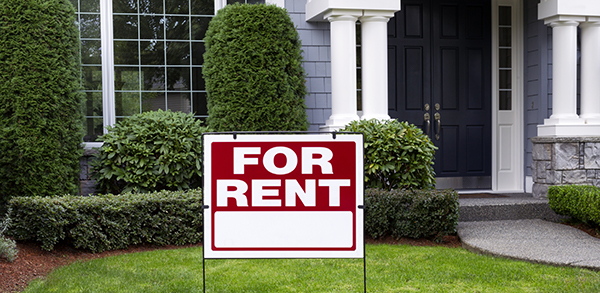Becoming a landlord is more than just buying a space and getting someone to move in. There’s a lot more to it, and it might surprise you just how much you need to take care of and be aware of before really getting into the game. To make sure you know just where to start, we’ve rounded up a number of things that all first-time landlords need to know to get up and running.
Know the Laws
Probably the most important thing to familiarize yourself with is all laws that involve landlords and tenants. In the U.S., every state has different laws so be sure to check out just what your region’s requirements are. They may seem vast but becoming well-versed in these could potentially save you a massive headache and possible massive legal fees. Most state government websites have a section that will outline the laws and regulations you should be aware of. Be sure to really study up on these so that tenants can’t find the smallest of loophole, this way you can avoid being taken to court.
Get Insurance
Unlike your home or car, you have almost no control over what a tenant might do inside your rental space. Plus, there are tons of scenarios that could happen that you can’t foresee or predict, like a pipe bursting, the furnace going out, or a natural disaster destroying the roof. To save yourself time, money and any future hassle, make sure your homeowner’s insurance covers your tenants and your rental space. Don’t skip it!
Create a Policy
Creating a policy and setting ground rules is another very important step in the process of becoming a landlord. If you don’t, don’t be surprised if your tenants start nailing holes in the walls and painting the kitchen avocado green. Many tenants won’t clean a place when they move out, or maybe ever, others may take a pet policy too far and start housing pigs. Once you create a policy, stick to it. Don’t budge for one tenant and then try to reinforce it all over again for the next. Along with creating a policy is make sure it is in writing. This will not only help you out, but your tenants too. With a policy, you can easily refer back to it when the tenant asks any questions about letting someone else move in, subletting, maintenance, or if they can pay rent entirely in quarters. Many people don’t question a policy.
Utilize Forms
Next to the policy, forms can also be a great lifesaver as a landlord. You can find ample amounts of sample contracts online. The more that you outline at the start of a contract the smoother things will run down the road. Along with a contract and policy form, maintenance and cleaning forms can also be great things to have handy. As we’ve said, people don’t often question something on paper.
Be Handy & Knowledgeable
Another big thing about being a landlord that isn’t necessarily a must, but it will definitely save you a little cash along the way is to be handy and knowledgeable. You don’t necessarily need to be an electrician, but fixing a blown fuse, unclogging a toilet or sink and other simple fixes should be on your list of skills. If you have to call a professional every time something breaks or leaks your maintenance bills are going to be out the roof and you and your tenants aren’t going to be too happy. If you’re not super handy, start reading up and studying everything you can. Plus, if you are really in the know-how but need a pro to fix something, you might be able to spot a ridiculously over-priced quote for a repair or part.
It’s a Part-time Job
Being a landlord isn’t something that you can just set off to the side and watch your invested money grow. It’s a part-time job. But it will pay off. If you stay on top of everything, that extra cash will really come in handy and not be going back into repairs or legal fees. There are many devices, apps and things out there that will be beneficial for you to employ, such as an electric submeter to keep track of utilities, a home warranty policy or even real estate software to keep track of contracts and forms. If you get to a place where the money is coming in and you’re doing pretty well, consider hiring a management company to take care of the little things. Then you can really sit back and relax.
Don’t Rent to Family or Friends
Though this one may seem small, it’s a doozy. Renting to family and friends can be a disaster, though we may not want to admit it, there are some relationships out there where a friend or family member will absolutely try to take advantage of you and play the “best friend card” and screw you over. To preserve those relationships and avoid losing money, never rent to family or friends. On top of this, don’t be afraid to be picky with just who you allow to rent out your space. It might be worth your while to let a space go empty for a month or two rather than renting to someone who could potentially destroy the place.
Contributed by David Glenn. David Glenn is a home improvement expert with nearly 30 years experience in the industry. Now retired, he enjoys writing about real estate tips, home maintenance and DIY home repair.





